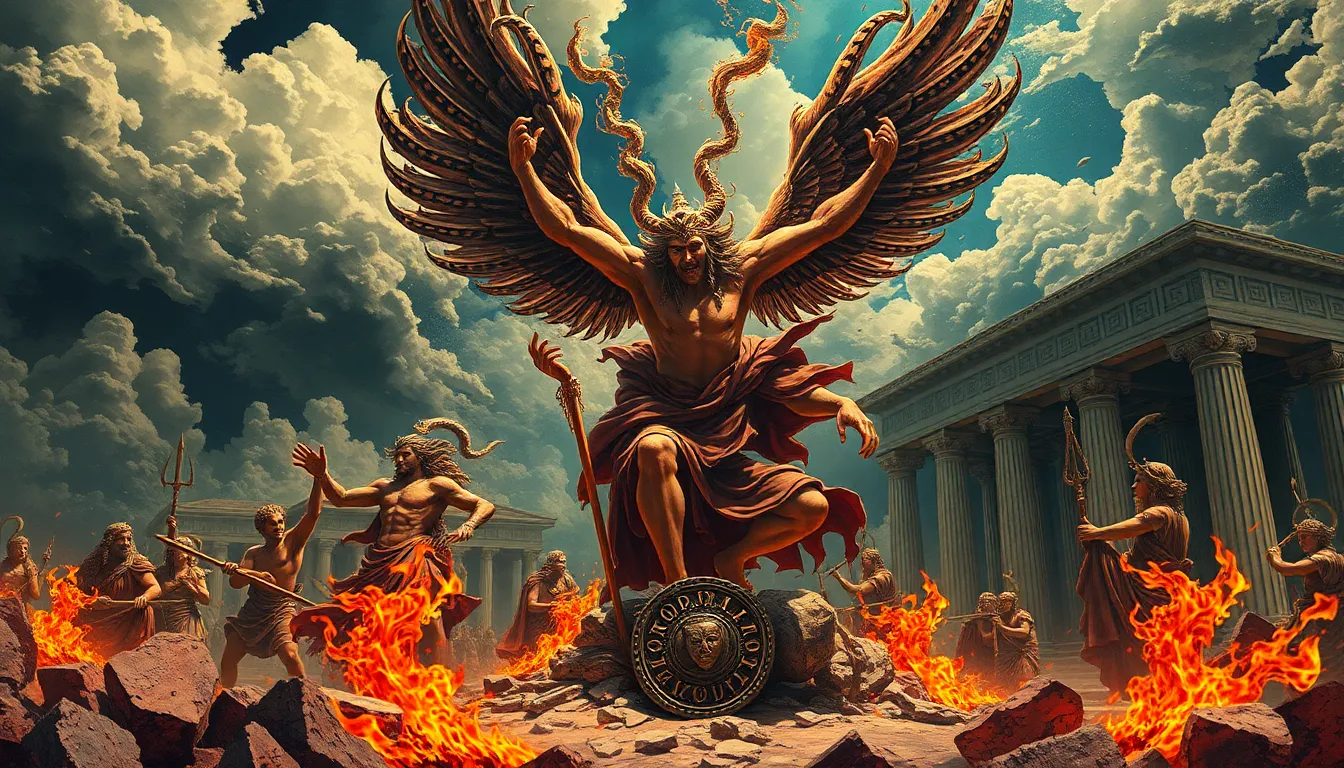Understanding Chaos: The Role of Anarchy in Greek Myths
I. Introduction
In Greek mythology, the concept of Chaos denotes a primordial void, a state of nothingness that existed before the creation of the universe. This idea serves as a fundamental element in understanding the cosmos and the emergence of order from disorder. The ancient Greeks also grappled with the concept of anarchy, which represents a lack of governance and structure, reflecting their societal fears and values.
The exploration of chaos and anarchy in mythological narratives is vital to understanding the ancient Greek worldview. These themes highlight the delicate balance between order and disorder, revealing profound insights into human existence and the nature of the universe.
II. The Nature of Chaos in Greek Mythology
Chaos is often described as the primordial void that existed before anything else. It is characterized by:
- A lack of form and structure
- The absence of light, time, and matter
From this void emerged the first deities, including Gaia (Earth), Tartarus (the Abyss), and Eros (Love). The relationship between Chaos and these primordial entities signifies the transition from nothingness to existence.
Symbolically, chaos represents the raw potential of the universe, embodying the unpredictability and complexity of creation. It serves as the fertile ground from which order emerges, illustrating the duality inherent in existence.
III. Anarchy and the Birth of Order
The transition from chaos to cosmos is a central theme in Greek mythology, emphasizing the delicate balance between order and disorder. This journey toward establishment is often depicted through key figures:
- Gaia – The Earth goddess who gives birth to the Titans and ultimately shapes the world.
- Uranus – The sky god who represents the heavens and the struggle for control over the earth.
Mythological stories illustrate the struggle against chaos, such as the Titanomachy, where the Olympian gods battle the Titans to establish order in the cosmos. These narratives demonstrate the ongoing conflict between chaos and the quest for stability.
IV. Chaos as a Catalyst for Change
Chaos often acts as a catalyst for personal transformation among characters in Greek mythology. This transformation is evident in various tales:
- Prometheus – His rebellion against the gods and subsequent punishment highlight the chaos of defiance leading to enlightenment and change.
- Heracles – His trials and tribulations reflect the chaos of his life, leading to his eventual heroism and redemption.
The cyclical nature of chaos and rebirth is prevalent in mythological tales, where characters often face chaotic situations that ultimately lead to growth and renewal. This cycle underscores the idea that chaos is not merely destructive but can also foster creativity and change.
V. Anarchy and the Human Condition
Greek myths often reflect societal values and fears surrounding anarchy. They depict the consequences of anarchic behavior, emphasizing the need for structure and order in human society. Some key points include:
- Myths often illustrate the chaos that ensues when order is disrupted.
- Characters who embrace anarchy typically face dire consequences, reinforcing the idea that societal order is essential for harmony.
Philosophically, the implications of chaos and anarchy in human society prompt reflections on governance, morality, and the human condition. These themes invite us to consider how the balance between chaos and order shapes our lives.
VI. The Duality of Chaos and Order
The exploration of chaos and order is a recurring theme in Greek myths. This duality is portrayed through the experiences of both gods and mortals, who navigate the complexities of existence:
- Gods often embody aspects of both chaos and order, reflecting the unpredictable nature of divine influence.
- Mortals face the tension between free will and fate, often caught in the struggle between their desires and the established order.
This tension highlights the intricate balance between chaos and order, emphasizing that both are essential to the fabric of reality. The duality serves as a reminder of the complexities of life and the ongoing struggle for stability amidst uncertainty.
VII. Modern Interpretations of Chaos and Anarchy in Greek Myths
The influence of Greek mythology extends into contemporary literature and art, where themes of chaos and anarchy continue to resonate. Modern interpretations often explore:
- The psychological ramifications of chaos, reflecting on its impact on the human psyche.
- The application of mythological themes to current societal issues, such as governance, morality, and personal identity.
These modern interpretations reveal the enduring significance of chaos and anarchy, offering valuable lessons on navigating the complexities of contemporary life.
VIII. Conclusion
In conclusion, the significance of chaos and anarchy in Greek myths cannot be overstated. These themes illuminate the intricate relationship between disorder and order, reflecting profound insights into human nature and society. The lasting impact of these narratives continues to inspire exploration and contemplation of the dualities that shape our existence.
As we delve deeper into the intricate relationship between chaos and order, we uncover timeless lessons that resonate across cultures and eras, inviting us to reflect on our own lives and the balance we seek within them.




